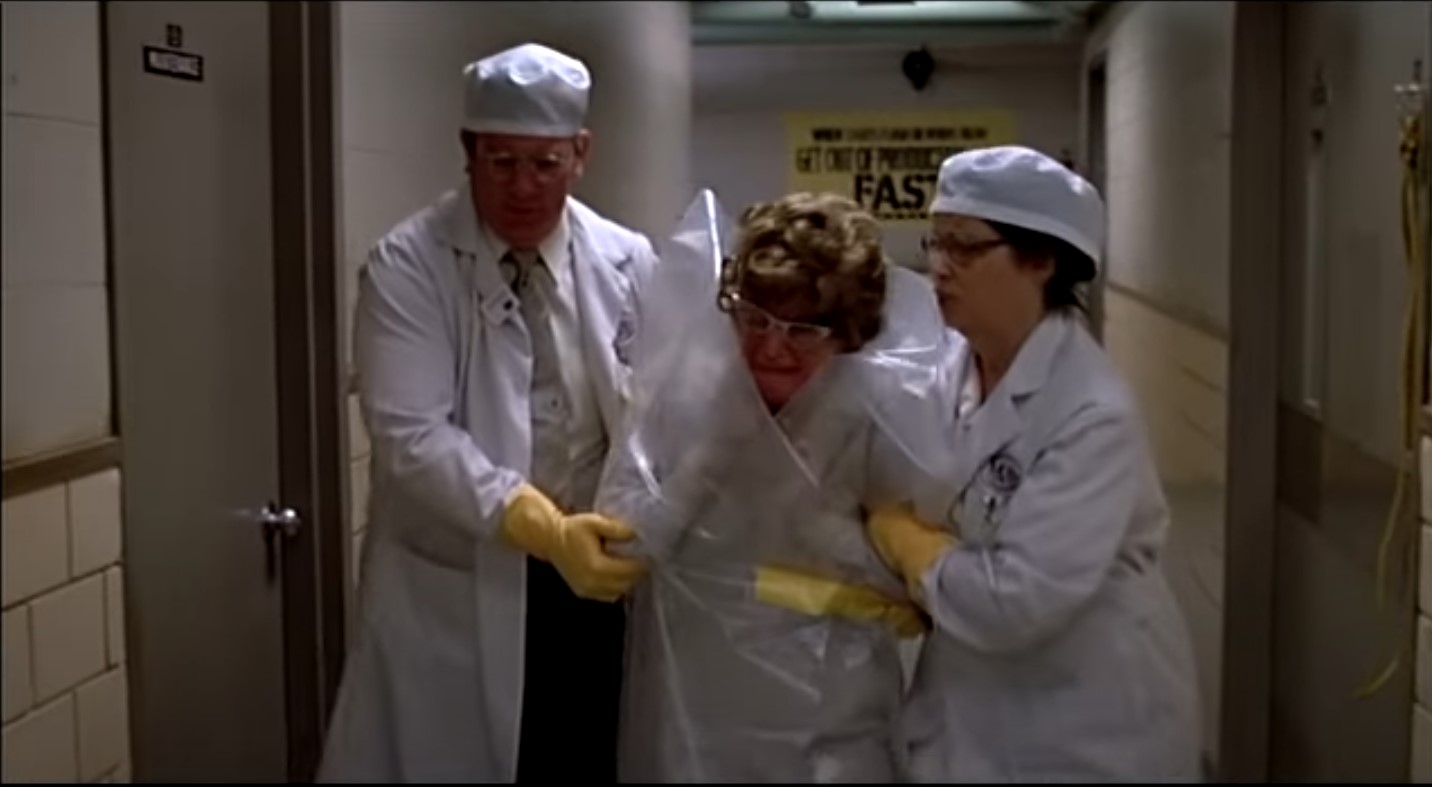Explains the principles and benefits of nuclear fission and nuclear power, while emphasizing the dangers of nuclear power through examples such as the Fukushima accident. It presents the economic benefits and moral dilemmas of nuclear technology and questions whether we should continue to develop nuclear power.
Nuclear fission is the process by which uranium-235 absorbs a neutron and splits into two different atomic nuclei. This results in a loss of mass and a very large amount of energy, E=mc². Initially, scientists who studied the possibility of fission thought that the energy released would be too small to be utilized, but then they realized that if two or more neutrons were ejected during the fission process, they could trigger a fission chain reaction, which would yield enormous energy. This idea, coupled with the superpower struggles of the time, eventually led to the atomic bombs dropped on Hiroshima and Nagasaki.
After World War II, the world pledged to ban the use of atomic bombs, but the technology used in the bombs, the fission chain reaction, is still used to generate nuclear power around the world. Initially, nuclear power was presented as a clean energy source that could replace fossil fuels, preventing the depletion of fossil fuels and eliminating the pollution that comes with thermal power generation. It can also be generated for a long period of time with a small amount of uranium, making it a very suitable power generation method for countries that lack energy resources. Therefore, nuclear power has become very popular worldwide, and South Korea has also entered the nuclear power plant business, operating 24 nuclear power plants as of 2024.
However, in 2011, in the aftermath of the tsunami caused by the Great East Japan Earthquake and subsequent tsunami, the Fukushima nuclear reactors exploded one after another, releasing massive amounts of contaminants and causing massive damage, forcing people to rethink the dangers of nuclear power that they had forgotten about. The devastation caused by nuclear power has made people wonder whether they can stop using nuclear power without giving up the benefits they have enjoyed, or whether they should continue using nuclear power despite the low probability of nuclear accidents. Is it right to make value judgments based on economic criteria when so many people’s lives are at stake?



The movie Silkwood (1983) depicts the impact of nuclear power on our society and the conflicts between people based on a true story, and makes the audience question what is right. Karen Silkwood, a real-life victim and the film’s main character, was an employee at a nuclear fuel reprocessing plant. Employees at this plant are at a much higher risk of radiation exposure than others, but they are completely unaware of the dangers of their work because the company does not provide any training on the dangers of radiation. Even the company’s resident doctor is a veterinarian, not a general practitioner, but people are happy to work in these harsh conditions. However, Karen, the protagonist, gradually develops an interest in the effects of radiation as she experiences her coworkers and herself being exposed to it. Along the way, Karen learns that the company has been manipulating X-ray tests to make defective products appear to be good. When the plant’s union faces extinction due to lack of votes, Karen becomes a committee member and meets with experts to save the union. Along the way, she learns that the company is overworking workers without telling them about the dangers of nuclear power. Karen also realizes that the company’s manipulation of inspections could mean the deaths of millions of people, and she feels a sense of moral responsibility. She enlists the help of experts to uncover the company’s misdeeds. In the process, however, many of her coworkers lose their jobs, making her an enemy of the company and an enemy of her coworkers. Karen refuses to give up and continues to do her job, but eventually dies in a mysterious car accident.
This movie highlights the dangers of nuclear power. The biggest problem with nuclear power is the waste it produces. Nuclear waste is itself highly radioactive and deadly to humans, destroying DNA and causing cancer. Karen’s company’s job is to reprocess this waste and put something useful back together, which means her employees are at risk of being exposed to radiation every day. But the company tells them not to worry, that a little radioactive contamination is “acceptable,” but the “acceptable” amount is completely unreliable. Workers in factories are exposed to radiation all the time, and even trace amounts can build up in their bodies over time, making even small amounts dangerous for them. And the problem isn’t just limited to workers. The reprocessed material that the company delivered under the guise of a legitimate product is directly related to the lives of not only the factory workers but also the local population. However, in the movie, these small voices of nuclear power’s evils are drowned out by the dominance of giant companies and the power of capital.
This makes us wonder if nuclear power is a technology that was developed by companies to make money without considering the safety of workers. However, we need to think about the net function of nuclear power. As I mentioned earlier, nuclear energy is a highly efficient source of energy that can generate a lot of power from a small amount of raw material. Without it, much of our electricity would have to be generated by thermal or hydroelectric power, which has the side effect of polluting the environment and wasting resources. Nuclear power is also directly related to the jobs of many people. The most difficult part of Karen’s union work has been the conflict with her coworkers. When they saw their coworkers getting fired for her work, they reacted violently, berating her and criticizing her outright. This was partly due to their ignorance of the dangers of radiation, but mostly because they feared for their jobs. It was sad to see the employees screaming at the top of their lungs that the union shouldn’t be negotiating wage increases or getting involved in odd jobs and taking away their jobs, but it also made me realize how important nuclear power is to society.
Considering this, it is unreasonable to criticize nuclear technology for being dangerous. Despite the movie’s portrayal of nuclear power as an evil corporation, current nuclear power operators are doing their best to set standards and ensure that plant workers are not exposed to radiation. Risky but necessary technologies like nuclear power set standards for risk. For example, there are standards that must be met to keep airborne contaminants below a certain level, or to limit the amount of radiation workers are exposed to over the course of a year. These standards are intended to reduce the probability of harm as much as possible. But the problem is that they can’t completely prevent the risk. There is no guarantee that a small concentration will not cause harm, and there is a very small chance that someone will actually be harmed by it. Furthermore, setting these thresholds doesn’t guarantee that your company will stick to them. Or even if they are, they can be violated in the heat of the moment, even if unintentionally. And, as the movie points out, it’s not just the workers who are at risk. The nuclear power plant accidents at Chernobyl and Fukushima and the enormous human toll they caused are examples. Is it really morally or economically reasonable to weigh the possibility of a catastrophic event against the economic benefit of reducing the probability? Some people liken it to driving a car, knowing that the probability of a car accident is quite high, but taking the risk because of the convenience. In this way, we might be able to reduce our moral responsibility. You might think that this risk is acceptable for the sake of convenience, but when you consider that you, your family, and countless other people in your community could die in a single car accident, is the risk still acceptable?
 I’m a blog writer. I want to write articles that touch people’s hearts. I love Coca-Cola, coffee, reading and traveling. I hope you find happiness through my writing.
I’m a blog writer. I want to write articles that touch people’s hearts. I love Coca-Cola, coffee, reading and traveling. I hope you find happiness through my writing.